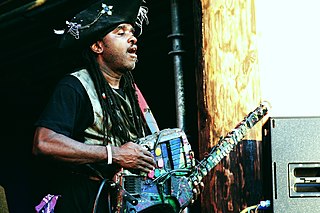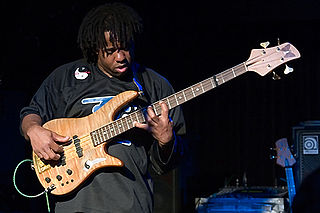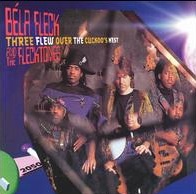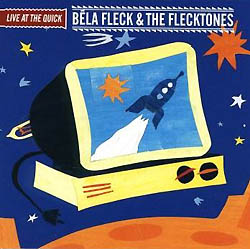| Rocket Science | ||||
|---|---|---|---|---|
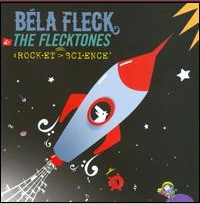 | ||||
| Studio album by Béla Fleck and the Flecktones | ||||
| Released | May 17, 2011 | |||
| Genre | Jazz fusion, progressive bluegrass, post-bop | |||
| Length | 64:28 | |||
| Label | eOne | |||
| Producer | Béla Fleck | |||
| Béla Fleck and the Flecktones chronology | ||||
| ||||
Rocket Science is a studio album by Béla Fleck and the Flecktones, released in 2011. It reached number 1 on the Billboard Jazz chart and number 36 on the Top Independent Albums chart. The song "Life in Eleven" won Best Instrumental Composition at the 54th Annual Grammy Awards.
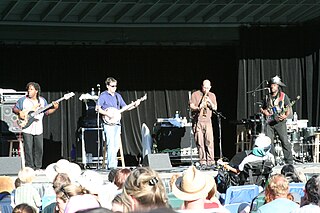
Béla Fleck and the Flecktones is an American band that combines jazz and bluegrass music. The band's name is a play on 1960s rock band Dick Dale and the Del-Tones.

Billboard is an American entertainment media brand owned by the Billboard-Hollywood Reporter Media Group, a division of Eldridge Industries. It publishes pieces involving news, video, opinion, reviews, events, and style, and is also known for its music charts, including the Hot 100 and Billboard 200, tracking the most popular songs and albums in different genres. It also hosts events, owns a publishing firm, and operates several TV shows.
Contents
The album is the first since 1992's UFO Tofu to feature founding member Howard Levy in the regular band lineup.

UFO Tofu is the third album released by Béla Fleck and the Flecktones, released in 1992. The title is a palindrome, which is also a musical theme in the title track, according to the album's liner notes.

Howard Levy is an American multi-instrumentalist. He was a founding member of Béla Fleck and the Flecktones, with whom he won a 1997 Grammy Award for Best Pop Instrumental Performance for the song "The Sinister Minister". He also won a Grammy for Best Instrumental Composition in 2012 for "Life in Eleven", a song written with Béla Fleck for the Flecktones' album Rocket Science (2011). He has worked with Arab-fusion musician Rabih Abou-Khalil, Latin jazz saxophonist Paquito D'Rivera, Donald Fagen, and Paul Simon.

